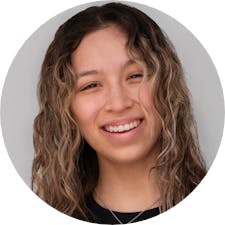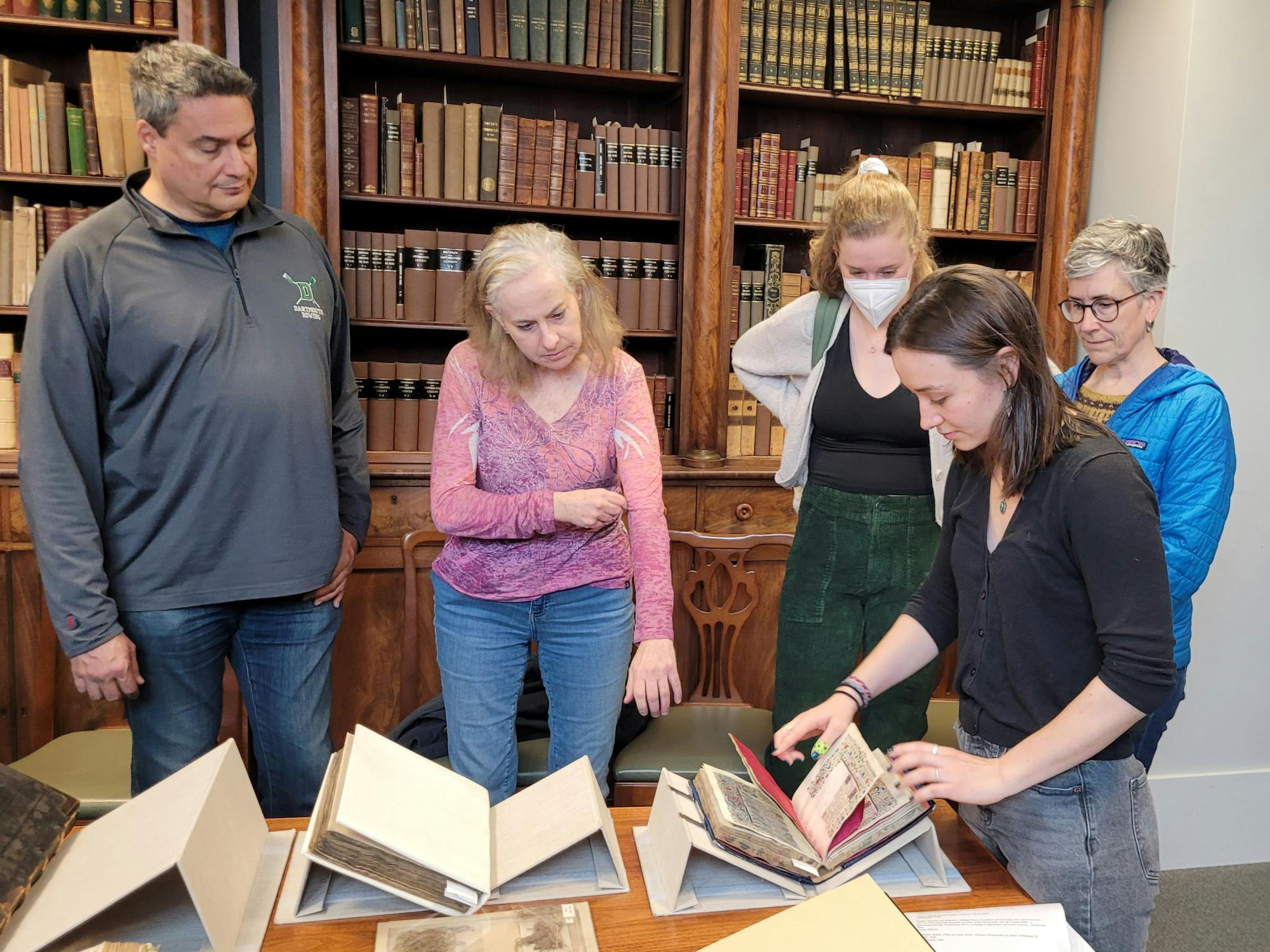In celebration of its 25th anniversary, the Rauner Special Collections Library co-hosted a four-day event series with the Book Arts Workshop and Jones Media Center. The programming, which took place from April 15 to 18, highlighted Rauner Library’s archival history, distinctive works and teaching and research opportunities.
The “Highlights of the Collections” tour, which was offered from April 16 to 18 and led by former historical accountability fellow Kira Parrish-Penny ’24, explored the acquisition and history of the collection’s most famous manuscripts. The tour highlighted works including Shakespeare’s first folio and first edition copies of Jane Austen’s “Pride and Prejudice,” Andreas Vesalius’s “De humani corporis fabrica libri septem” and the script of Charles Reisner’s acclaimed film, “Winter Carnival.”
Both Dartmouth and Upper Valley community members attended the tour to learn about the collections. Neha Agarwal ’24 said the tour was “such a cool experience” because she was able to “look through and actually touch everything.”
Several attendees also stayed after the tour to flip through the books, hold the artifacts and ask questions about the items’ unique histories.
Keynote speaker and University of Connecticut English professor Regina Barreca ’79 said she thought the tour was “fabulous.” On April 18, Barreca gave a speech in Berry Library entitled “Whispering in the Archives: Secrets, Discoveries and the Cheerful Sanctity of Shared Experience.” The presentation explored Rauner Library as “a source of enlightenment” and “a powerful reminder of the sanctity of shared experience — scandalous as it may be,” according to the Rauner Library website.
Attendees also had the opportunity to use author and screenwriter Mario Puzo’s typewriter — which he used to write “The Godfather” — before their tour, according to Rauner Library’s website. Afterwards, participants could attend a book preservation showcase held in Baker-Berry Library that detailed the wide variety of treatment techniques and equipment preservation staff can use for book conservation.
On April 15 and 16, Dartmouth teaching staff also held three panels on teaching and researching with the Rauner Special Collections. The Book Arts Workshop held a “Parchment and Quill” session on writing with iron gall ink that allowed participants to practice their penmanship with a quill pen, while the Jones Media Center and Digital by Dartmouth Library team offered programming on how physical items become digitized and organized online.
Parrish-Penny was part of a student panel in Baker-Berry Library on the historical accountability student research program on April 16, along with former historical accountability fellows Anneliese Thomas ’19 and Cecelia King ’23. According to the Rauner Library website, the panelists shared their experiences conducting research at Rauner Library and the ways in which their fellowships impacted their time at Dartmouth.
In an interview with The Dartmouth, Parish-Penny said her fellowship has allowed her to work with Special Collections librarian Jay Satterfield to bring attention to Rauner Library’s hands-on learning opportunities and help students take advantage of the collections available to them. She said Satterfield asked her to lead the tours due to her prior work in the library.
“I think that it’s so cool to be able to explore history with that context and be able to hold the materials that are contributing to the way that we write history and think about history,” Parrish-Penny said. “It makes the experience of learning history so much more intimate.”
In an interview with The Dartmouth, Barreca previewed the key points about her archival experiences she later made in her keynote address. She said she began documenting her life in her teenage years, a practice she continues to this day. As a first-generation, low-income student who was part of the College’s third coeducational graduating class, Barreca said she thought she would never return to the College after her “horrid and beautiful” experience here. Nonetheless, she said she has been a guest speaker at various College commemorations. In 2011, for example, she gave a presentation on her perspective of Winter Carnival based on her time as a student, according to Dartmouth News.
In 2011, Barreca published “Babes in Boyland: A Personal History of Co-Education in the Ivy League” — a critical text that offers readers an insight into the College’s early years of coeducation and details the ways in which Barreca said she, a first-generation, low-income woman, differed from the “average” Dartmouth student.
Artifacts from Barreca’s time at Dartmouth — including academic assignments, handwritten letters, sketches from friends, menus from restaurants in Hanover and fortune cookie remnants from local Chinese restaurants — will become a part of Rauner Library after her death, she said.
Barreca added that she does not believe first drafts of her work should be included in the archive, since people can read a finished copy of the book. Instead, she will include papers with what may be considered “bad grades” and rejection letters.
“I have the exams that I didn’t do well on, the drafts of papers I got B-minuses on,” she said. “I have the stuff I did well on, but I think it’s important for somebody who has made a life in the world — writing and teaching and scholarship — to say, ‘You don’t start out knowing how to do everything. You learn things, and you fail along the way.’”
Correction Appended (April 24, 12:38 a.m.): A previous version of the article referred to Kira Parrish-Penny as the historical accountability fellow. Parrish-Penny was a historical accountability fellow in spring 2023 and is now a student employee at Rauner Library. The article has been corrected.

Alesandra Gonzales is a reporter, photographer, and videographer for The Dartmouth from south Texas, majoring in psychology with a minor in film. Outside of The D, she likes to workout, watch The Ranch, and do EMS work. She is a licensed EMT in three states.




